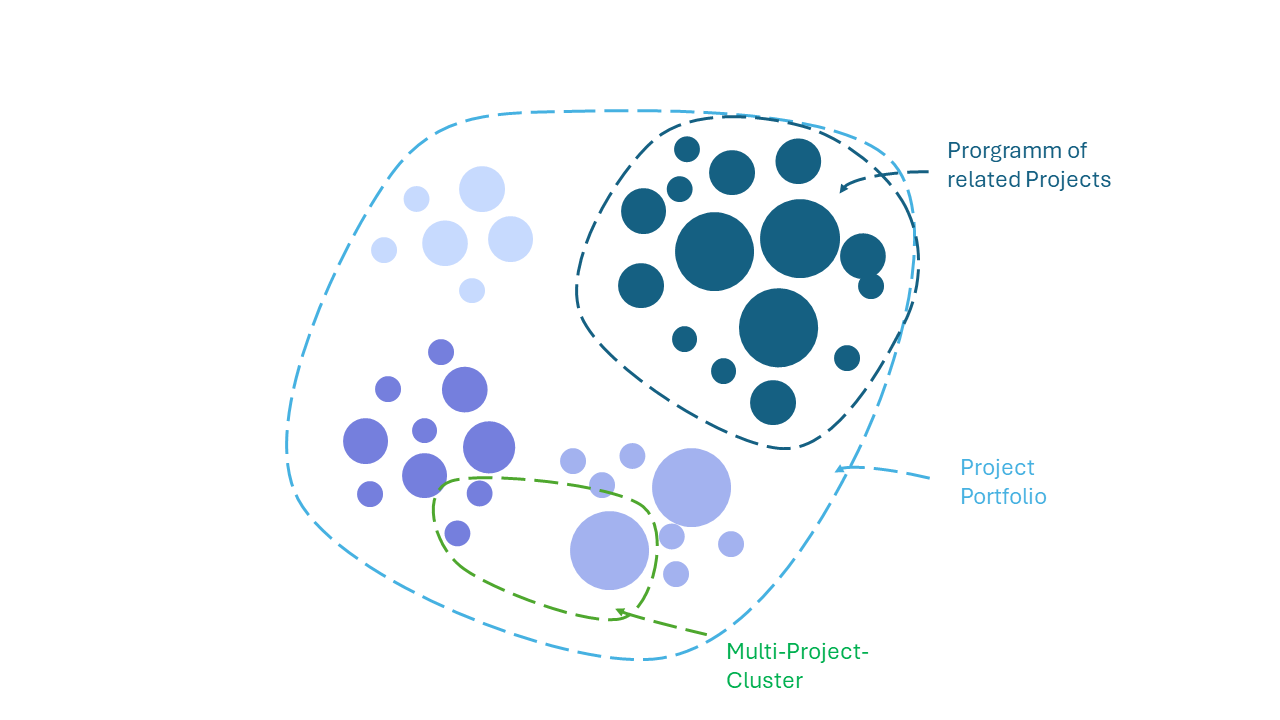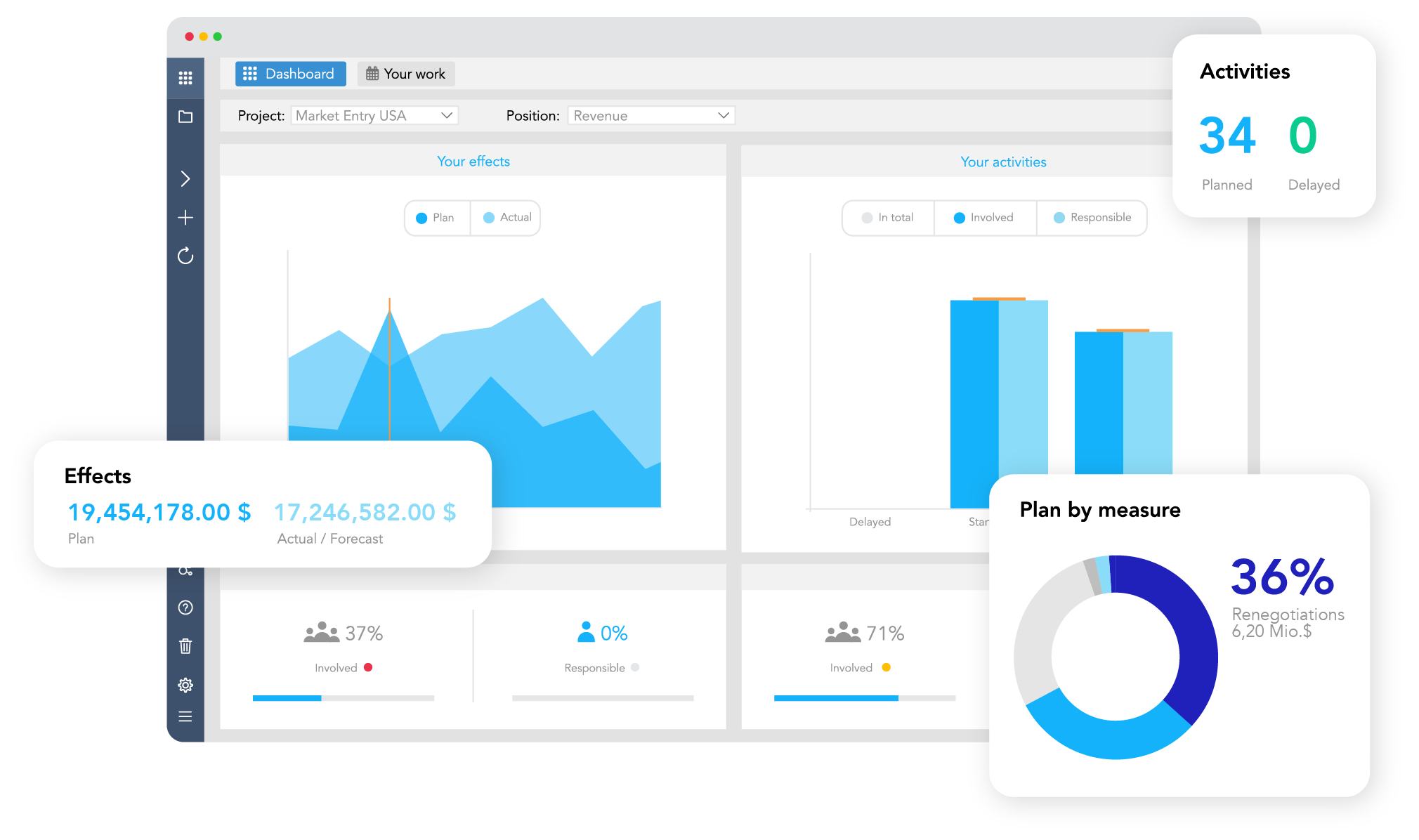In the fast-paced realm of project portfolio management, the role of a program management officer stands as one of the pivotal cornerstones. In this article, we delve into the essence of the Program Management Officer role, how it relates to Project Portfolio Management (PPM) and the Project Management Office (PMO), the common tasks associated with this crucial position, and the skills needed to succeed in this role.
What is a Program Management Officer
At its core, a Program Management Officer serves as the central hub for program oversight within an organization. In essence, the Program Management Officer will act as a catalyst to drive organizational change, foster collaboration among project teams, and optimize the use of resource utilization in order to maximize project outcomes. This role requires a unique blend of leadership, communication, and analytical skills, coupled with a deep understanding of project management methodologies and principles. As such, the Program Management Officer bares a similar role to that of a Project Management Office (PMO) member. Whilst the differences are subtle, they nonetheless important. To better understand these differences, let’s take a look at the PPM universe and its numerous players and stakeholders.
Where does the Program Management Officer fit into the PPM universe and what role does he play?
So, what is the difference between a Program Management Officer and a Project Management Officer - and what is the Project Management Office to begin with? For a better understanding of the nuances between these terms, it is worthwhile taking a look at the PPM landscape itself: Project Portfolio, Multi-Project, Program, and Project Management. In essence, these terms are closely related, but from different perspectives.

- Project management… is the discipline that focuses on planning, executing, and closing individual projects within an organization. For example, the revamp of a company’s website.
- Program management involves coordinated management of projects and activities aimed at achieving the same strategic goal. For example, all projects related to driving online revenue.
- Multi Project Management involves the coordinated oversight and control of multiple projects within an organization that - other than in a program - are not impacting the same strategic goal. Whilst they do not need to be related, they tend to be (e.g. all IT projects).
- Project Portfolio Management (PPM) is a strategic approach to the management of a collection of projects, programs, and other initiatives within an organization.
Project Portfolio Management (PPM) involves the strategic alignment, prioritization, and management of an organization's portfolio of all projects and programs to achieve its overarching objectives. Within PPM, the Program Management Officer serves as a linchpin, orchestrating the seamless execution of multiple related projects while maintaining alignment with the organization's strategic vision.
The Program Management Officer's involvement in PPM goes beyond project oversight; it contains strategic planning, risk management, resource allocation, and performance monitoring across the entire program or even program portfolio. By leveraging PPM practices, the Program Management Officer enables organizations to make informed decisions, optimize resource allocation, proactively mitigate risks, thereby enhancing the likelihood of project success and delivering tangible business value.
Common Tasks of a Program Management Officer
While the specific responsibilities of a Program Management Officer may vary depending on the organizational structure and industry context, some common tasks associated with the role include:
Governance and Compliance: Establishing project management standards, policies, and procedures to ensure adherence to regulatory requirements and industry best practices.
Strategic Planning: Collaborating with key stakeholders to define program objectives, develop strategic roadmaps, and align project initiatives with organizational goals and priorities. Align projects with the organization's strategic goals and objectives. More in-depth information is available here.
Resource Management: Overseeing resource allocation, capacity planning, and skill development to optimize resource utilization and mitigate potential bottlenecks. Efficiently allocate resources, including budget, personnel, and time, across the portfolio of projects. More in-depth information is available here.
Risk Management: Identifying, assessing, and mitigating project risks through proactive risk management strategies, contingency planning, and issue resolution.
Performance Monitoring and Reporting: Tracking key performance indicators (KPIs), analyzing project metrics, and providing timely reports to stakeholders to enable data-driven decision-making and course correction.
Stakeholder Engagement: Facilitating communication and collaboration among project teams, sponsors, and stakeholders to ensure transparency, alignment, and stakeholder satisfaction throughout the project lifecycle.
Continuous Improvement: Promoting a culture of continuous improvement by evaluating project outcomes, soliciting feedback, and implementing lessons learned to enhance project delivery processes and outcomes.
In summary, the Program Management Officer (Program Management Officer) plays a pivotal role in driving project success and organizational excellence through effective program management practices. By embracing the principles of Project Portfolio Management (PPM) and executing key tasks with diligence and proficiency, Program Management Officers empower organizations to navigate complexity, mitigate risks, and achieve their strategic objectives in an ever-evolving business landscape.
Skills needed to be a good Program Management Officer
Since a Program Management Office plays a critical role in overseeing and managing related projects within an organization, they benefit from a combination of technical, interpersonal, and organizational skills. Key skills include the following.
Project Management Skills: A strong understanding of project management methodologies, tools, and techniques is helpful. This includes knowledge of project planning, scheduling, budgeting, risk management, and resource allocation. Program Management Officers seldom engage in project planning themselves, but it truly helps to understand what the project managers are doing.
Communication Skills: Excellent communication skills are necessary for a Program Management Officer to effectively interact with team members, stakeholders, and executives. They should be able to articulate strategic goals, provide updates, and address concerns in a clear and concise manner.
Leadership Skills: Program Management Officers often need to lead cross-functional teams and coordinate activities across different departments. Strong leadership skills are essential for motivating team members, resolving conflicts, and driving projects toward successful completion.
Analytical Skills: Program Management Officers must be able to analyze program and project data, identify trends, and make data-driven decisions to optimize project performance. This includes tracking key performance indicators, which are often of a financial nature, monitoring progress, and identifying areas for improvement.
Problem-Solving Skills: Projects are often fraught with challenges and obstacles. Program Management Officers need strong problem-solving skills to address issues as they arise, adapt to changing circumstances, and find creative solutions to complex problems. Oftentimes, these problems arise within cross-functional teams, and at this point, the communication skills come in again.
Organizational Skills: Program Management Officers are responsible for keeping entire programs of projects on track and ensuring that deadlines are met. Strong organizational skills are essential for managing multiple tasks simultaneously, prioritizing activities, and allocating resources efficiently.
Stakeholder Management: Program Management Officers need to build and maintain positive relationships with stakeholders, including clients, sponsors, and team members. This involves understanding stakeholder needs, addressing concerns, and managing expectations throughout the project lifecycle.
Risk Management Skills: Identifying and mitigating risks is a key aspect of project management. Program Management Officers should be able to anticipate potential risks, develop contingency plans, and implement risk mitigation strategies to minimize project disruptions.
Domain Knowledge: Depending on the nature of the projects they oversee, Program Management Officers may need specific skills and knowledge related to their industry or field of expertise. While some organizations emphasize this aspect less than others and crucially bank on PPM skills, program management officers benefit from understanding their stakeholders, which tends to result in a better standing within the organization and their program peers.
You are a Program Manager and do you want to learn more about PPM?
You are in the right place. PPM encompasses numerous tasks: Strategic goal setting, prioritization, risk management, portfolio analysis and reporting, and much more. If you would like to dig deeper, a good place to start is this overview article, which can help you find the content you are looking for: An Introduction For Practitioners With Little Time On Their Hands
Do you know out PPM software Falcon?
Falcon is a Project Portfolio Management software that is already used by numerous program managers in the PPM business. If you would like to learn more about how Falcon can make your portfolio a success, book a demo with our experienced team now.


